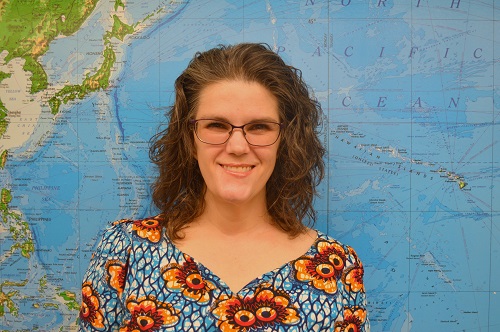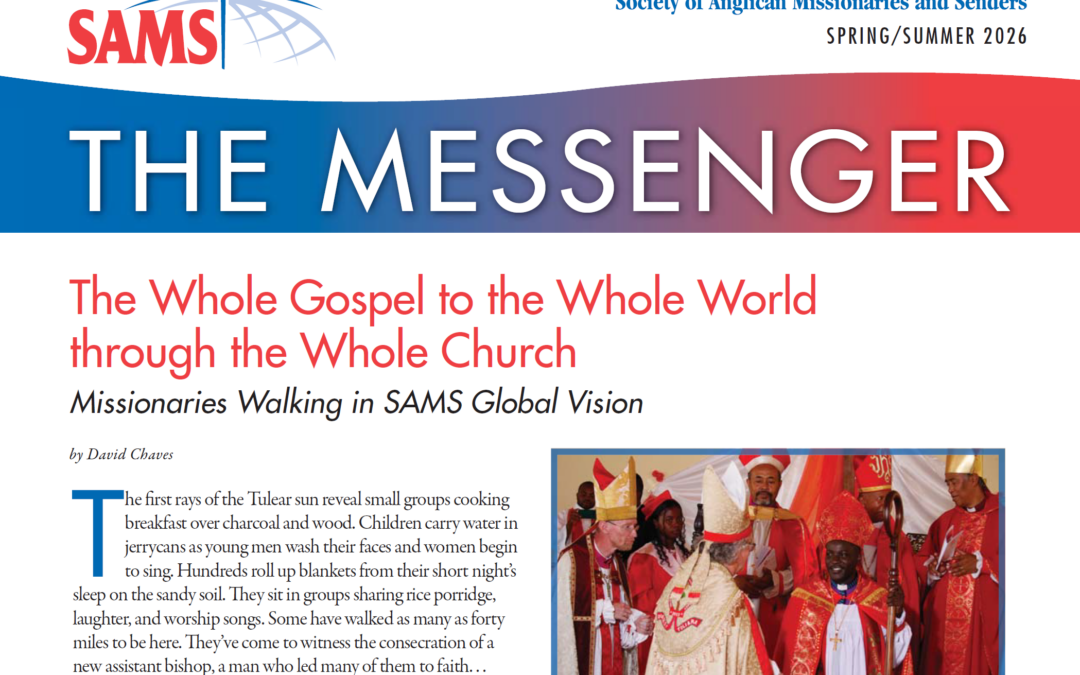

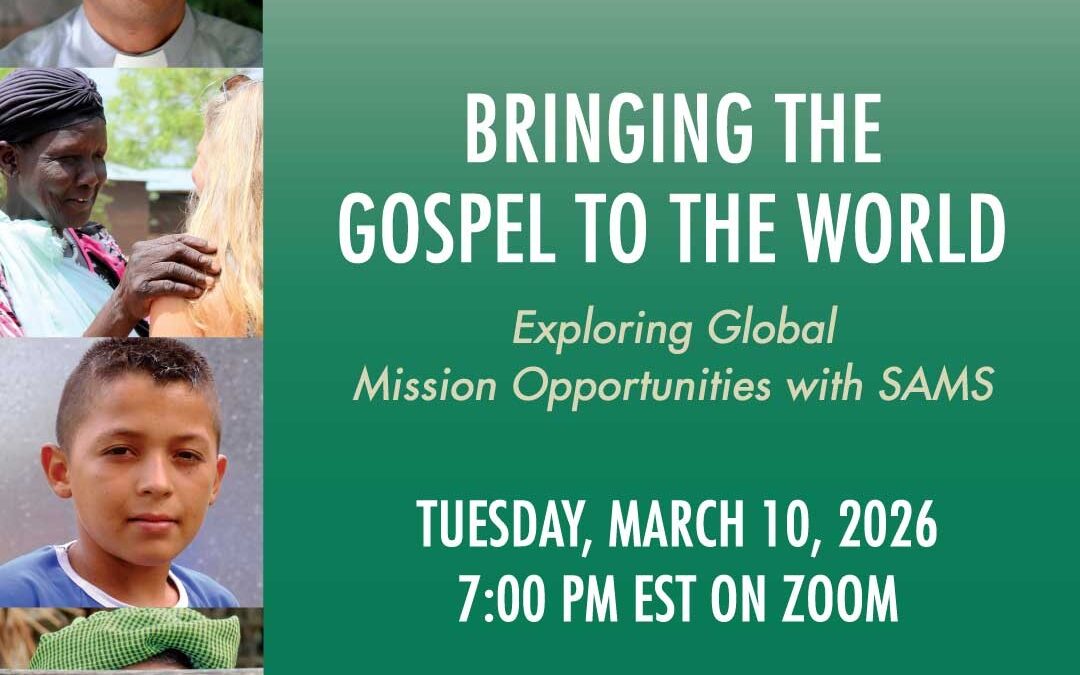
SAMS Mission Opportunities
More detailed information here
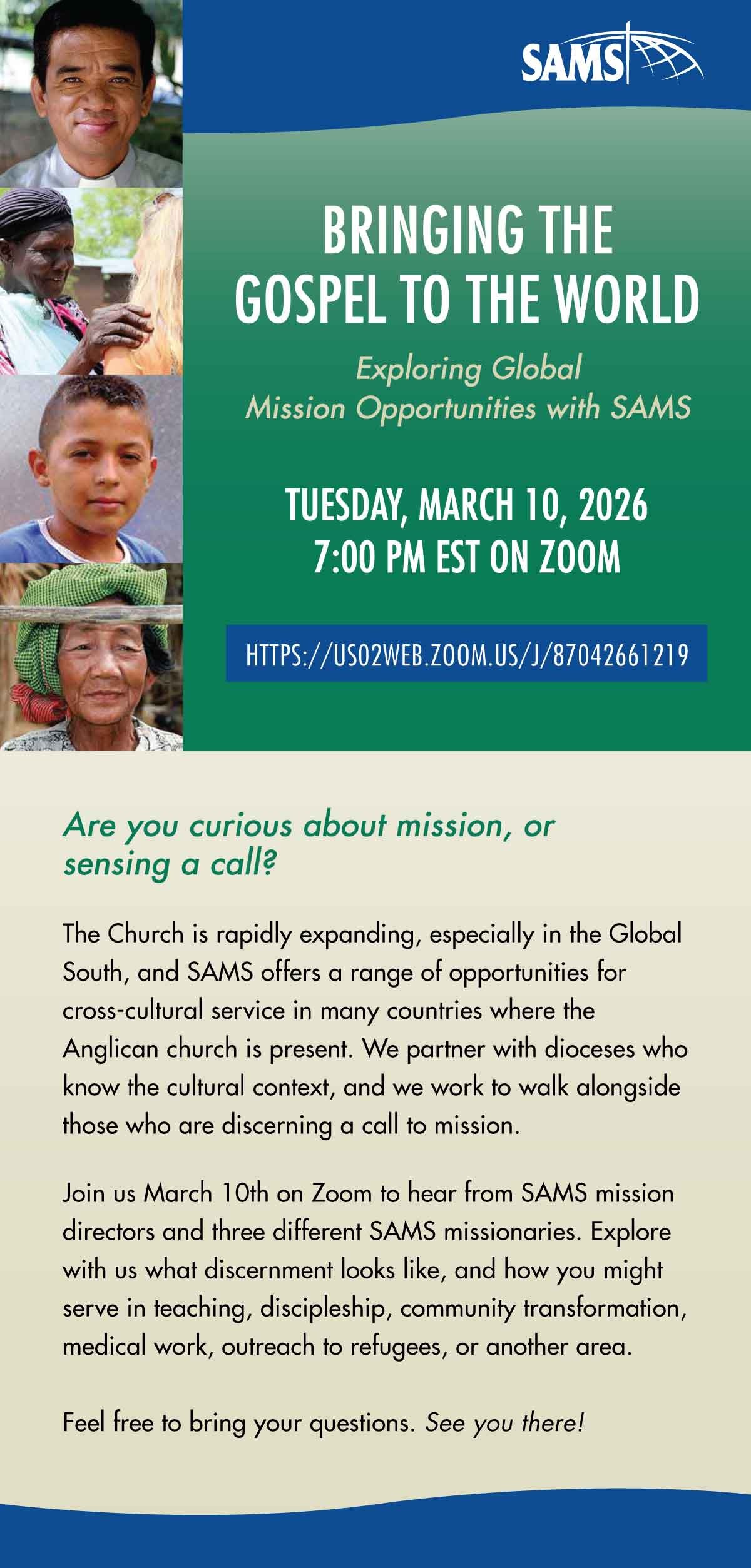
Click here for further information
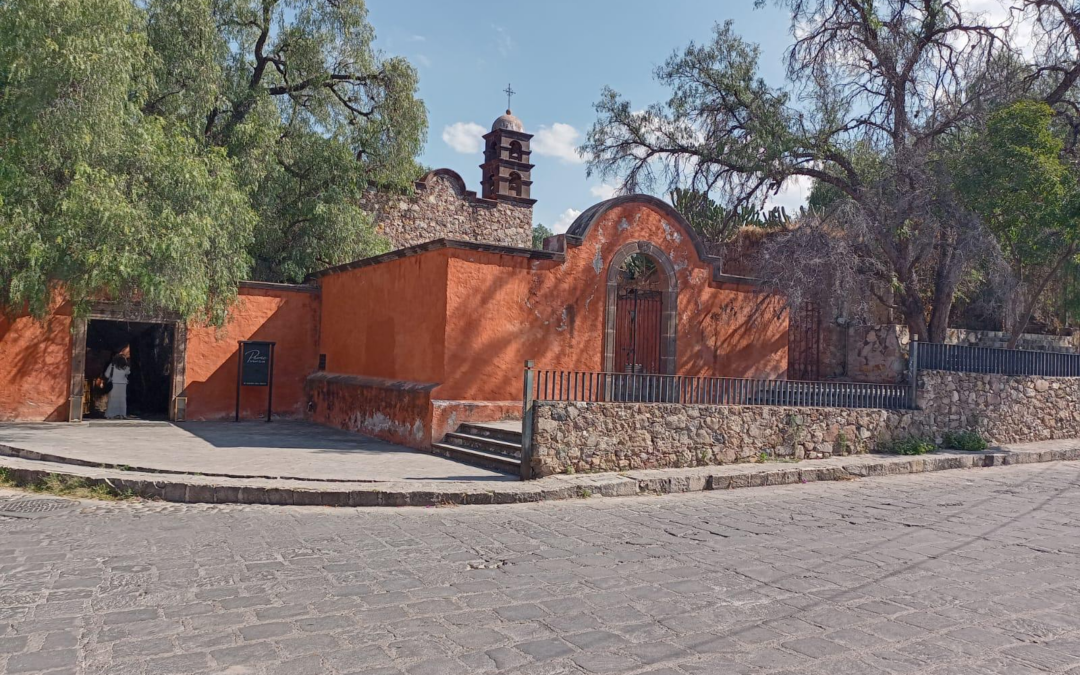
New Year, New Church!
Back in May we wrote about being hooked up with an expat group in a little town called, San Miguel de Allende. Here’s what has happened since:
A curious group of about twenty persons attended that first service in English. Among them, the owner of the chapel, Don Pablo, came with his sister and her husband. They were deeply moved to be worshiping in their family chapel, to the point that Don Pablo asked us to also offer a service in Spanish for his many employees. Oh yes! What joy! 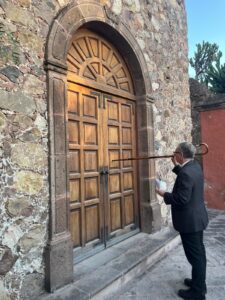
Two weeks later we had an English service with about twelve, and a Spanish service with almost thirty! Every month since May, we have returned to celebrate the Eucharist and bring the Gospel to both beautiful groups.
But is it a “church” yet?
It takes a lot of commitment from everyone to start a church. We knew we needed to have weekly Sunday services, but even the once-a-month rent for the chapel was more than the group could support. And where would we have Bible Study, or children’s church? San Miguel is expensive! How will God do this? Nonetheless, we saw that God had given Roger favor among both groups, and we love the community they are forming. But where, how, could things go forward? Was there no room at the Inns of San Miguel?
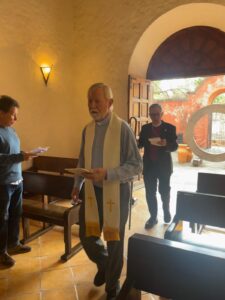 “God, what are you doing?” was our daily prayer while we continued to work in supply and support ministry, now working in three different states in Mexico every month.
“God, what are you doing?” was our daily prayer while we continued to work in supply and support ministry, now working in three different states in Mexico every month.
By November we were perplexed and tired. We stepped back from all other services, thinking to get quiet. Instead, we decided to seek that quiet in San Miguel for a couple of weeks– long enough to really know the people involved. We needed clarity. We were exploring ways to overcome the practical hurdles and expenses of a full-time church, knowing it would change our lives radically to uproot from Aguascalientes, to serve in one place after seven years of circuit-riding.
While we were in San Miguel for Thanksgiving, Roger arranged a meeting with Don Pablo, ready to negotiate the possibility of weekly rental of the chapel. That was the first hurdle for the group. But Don Pablo surprised him with the generous suggestion that the group should consider his family chapel their home. For free. Any days or times. Extra garden space for the kids. Whatever. Free.
We were stunned into a quiet ride back to our AirBnB, our hearts full of wonder. The next day we procured a rental contract on a little casa for us in San Miguel starting in January. The adventure begins!
But first, we flew home for Christmas. We’d downsized and packed for the move while staring at the higher cost of living, the cost of the interstate move, the unknowns, and—none of it mattered! We see that God was already providing for what is obviously a church being born, by His will, in the fullness of time. We are merely His little donkey carrying the Light.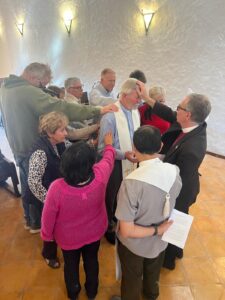
Like some anxious midwife, I immediately bought liturgical fabrics for the altar. Others had already stepped up and donated candlesticks, a podium, and a small sound system. My keyboard will now fill the little chapel with praise. Someone always brings flowers. Everyone brings something for the coffee/snack time between services so that expats and locals have time to meet each other. It’s beautiful to watch, and really, we had little to do with it except a plodding obedience. I think we got our answer: Yes. It’s a church!
We moved to San Miguel de Allende on January 14th. On the 28th, Bishop Steven Tighe and his diocesan staff joined us for a consecration of the Chapel of St. Mary and Joseph and confirmed Roger as the rector. On February 1st, we had our first official Sunday service.
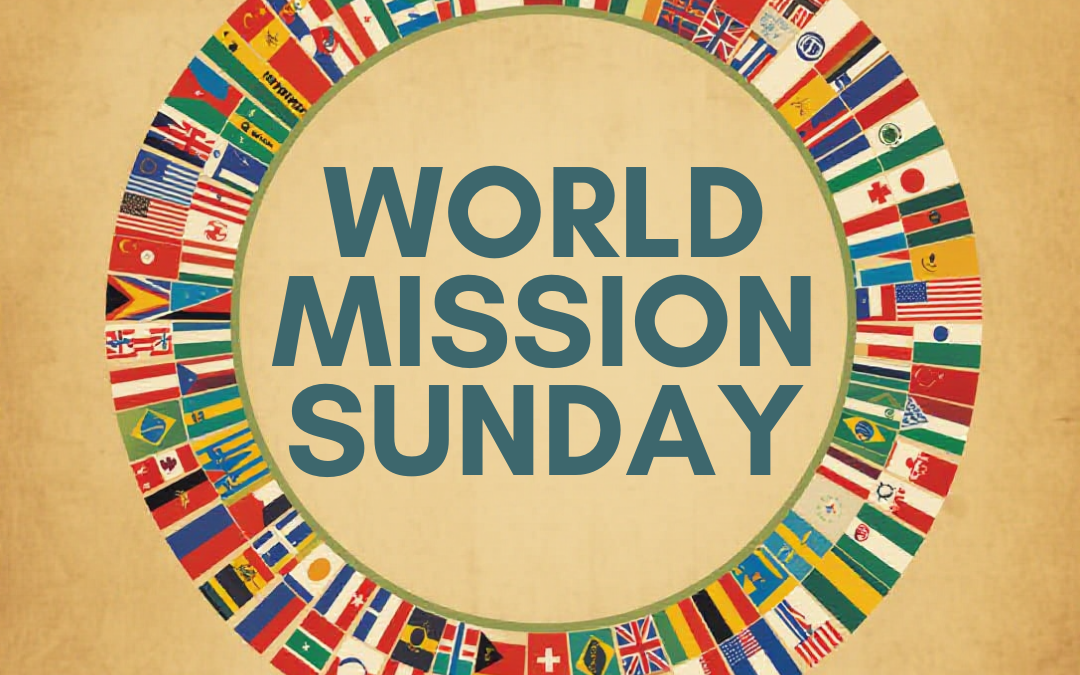
World Mission Sunday
World Mission Sunday
February 8th, 2026
A special time set aside for Anglican churches
to refocus on the work God is doing around the world
Here are resources from SAMS and our Anglican Global Mission Partners for your church to use on World Mission Sunday on February 8th. Start getting ready now.
- Prayer bookmarks: Sign up at this link and we can send you prayer bookmarks to distribute to your church family. These are available on a first come, first served basis.
- Liturgical Resources for use in your church services or small groups:
- Prayers of the People for World Missions Sunday: Incorporate this into your Sunday liturgy.
- Kenyan Prayer for Missions: Incorporate this liturgy from Kenya into your service of Holy Eucharist.
- AGMP Litany for Mission: Use this litany pamphlet from Anglican Global Mission Partners in your church service or small group.
- Resources on discerning a call to serve in missions or send missionaries:
- The Windmill Chain of the Gospel – Making Disciples in Europe: Show this video to get people excited about mission!
- Go Where God Calls You: Show this video from SAMS on discerning a call to missionary
service! - Watching God Work: Show this video with missionary testimonials of God’s work
- Being a short-term Missionary Bridger
- Being a Missionary Sender
- Invite parishioners and clergy to sign up for our Missionary Discernment Journaling Resource at this form. Written by Bishop Todd McGregor and other contributors, this journaling resource helps those discerning a call to slow down and pray through issues for discernment.
- Join with us in prayer for missionaries on a regular basis! Download our 6-month prayer calendar and sign up to receive recent monthly prayer requests via email at this form
Resources for Kids!
- Kids Prayer bookmarks: Sign up at this link and we can send you prayer bookmarks to distribute to the children in your church! These are available on a first come, first served basis.
- We have globe beachballs to use for prayer with kids. Pass the ball around, and pray for the country your finger lands on! Sign up at this link for us to send you some. These are available on a first come, first served basis.
- Download our world missions coloring page for kids to do at church or home. Learn about the continents and pray for the hope of Jesus to spread around the world!

How One Chilean Church is Bringing the Gospel to Working People
by Chris Feuillade, Associate Missionary to Chile
Iglesia El Salvador, where I have been serving as an Associate Missionary for more than 19 years, is a small Anglican Church that is on the cusp of something fresh and exciting. I have witnessed much over almost two decades here, but now my parish, which lies within the growing Anglican Province of Chile, has welcomed a new pastor with a clear gospel-oriented vision for reaching the people in our area.
The Challenge in Chile
While today Chile is successfully emerging from its previous third-world status, it remains an economically divided country, with large disparities in income. People at the lower end of the economic ladder often struggle to make a living and raise their families. This is true for this part of Santiago named San Joaquin, where the parish resides. San Joaquin is a working-class community, and this is reflected in the membership of Iglesia El Salvador. Over the years, while remaining faithful, the church has found it difficult to become self-sustaining. It has frequently depended on support from other outside sources, without having its own permanent pastoral leadership.
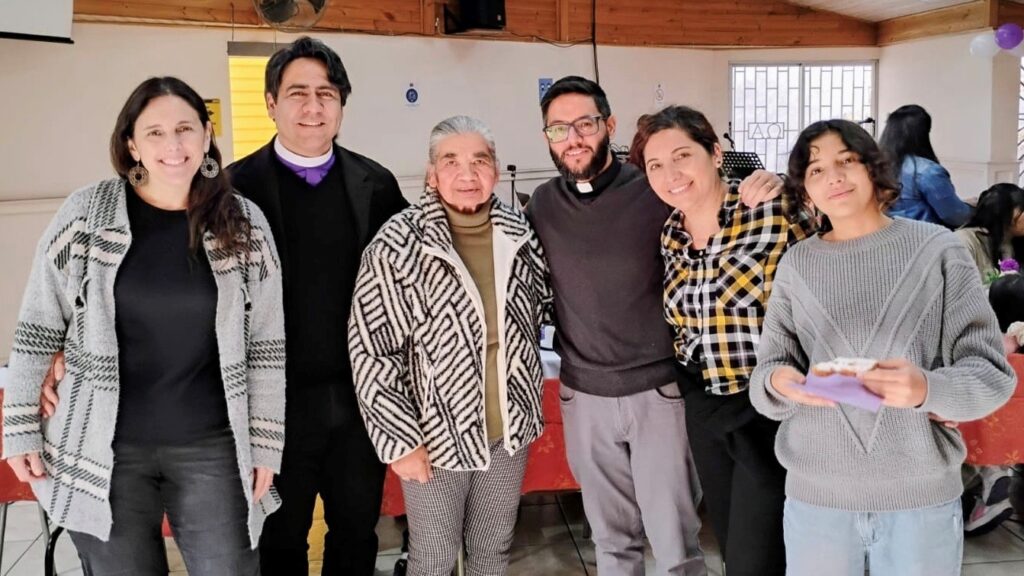
Pastor Morales, third from right, with his wife Melanie, daughter, Alicia with Bishop Juan Esteban Saravia and his wife Carolina on the left
Deacon Emanuel Morales
Recently, Iglesia El Salvador has been blessed by the appointment of a new young pastor, Emanuel Morales, whom the people of the church are striving to retain. The bishop ordained him a deacon to lead the church and to develop its ministries, including discipleship and outreach to the San Joaquin community. Emanuel was initially raised within the Assemblies of God and became a Christian through that ministry at age 15. Afterwards he moved to San Lucas Evangelista Anglican Church in La Florida, Santiago, after studying the reformation at university as a student of pedagogy in history. He was attracted by the strong evangelical, scriptural, and liturgical expression of the Anglican tradition in Chile.
Emanuel brings a strong personal connection to Iglesia El Salvador. He and his wife were previously lay members for several years, and his parents are also members. He discerned his call to ordained ministry as an apprentice to Pastor Nicolas Fuentes at a neighboring Anglican Church for several years, and then attended Centro de Estudios Pastorales (CEP), the Anglican Province of Chile’s seminary in Santiago.
Gospel inroads
Emanuel brings a clear understanding of the lives and needs of the community surrounding the church and how they may be reached by the gospel. In Chile, working class people are strongly motivated by the interests and welfare of their families, and are prepared to bear much stress and hardship in order to provide for them. Parents will make great sacrifices to overcome the difficulties they face, and promote a better future for their children, even though they may never personally experience it themselves. In order to reach such family-oriented people, Emanuel believes that it is critical for the church to live as a genuine, caring, and loving family, being a recognizable and relatable witness to the surrounding community.
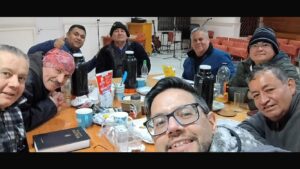
Men’s Small Group Bible Study
Similarly, the church must recognize the needs of the many young people living in San Joaquin. In Chile, young people are subject to the same seducements as in many western nations, i.e., sex, drugs, social media, petty crime, etc. Much of this is due to the lack of authentic social relationships, according to Emanuel. Young people need deep and honest connections with others, especially those that can be found through a saving relationship with Jesus, and within the genuine fellowship of the church. Young people have shunned institutions which are too formal, where they detect falseness and hypocrisy. Christian outreach to the young in Chile has been impacted over recent years by flagrant examples of bad Christian witness from both the Roman Catholic Church (through sex scandals) and some of the evangelical churches (through the preaching of the prosperity gospel). To reach out effectively, Iglesia El Salvador must be a genuinely different, truthful, and caring community, which holds firmly to the gospel and lives it, so that everyone can see that what is being preached is also being practiced.
Fulfilling the Vision
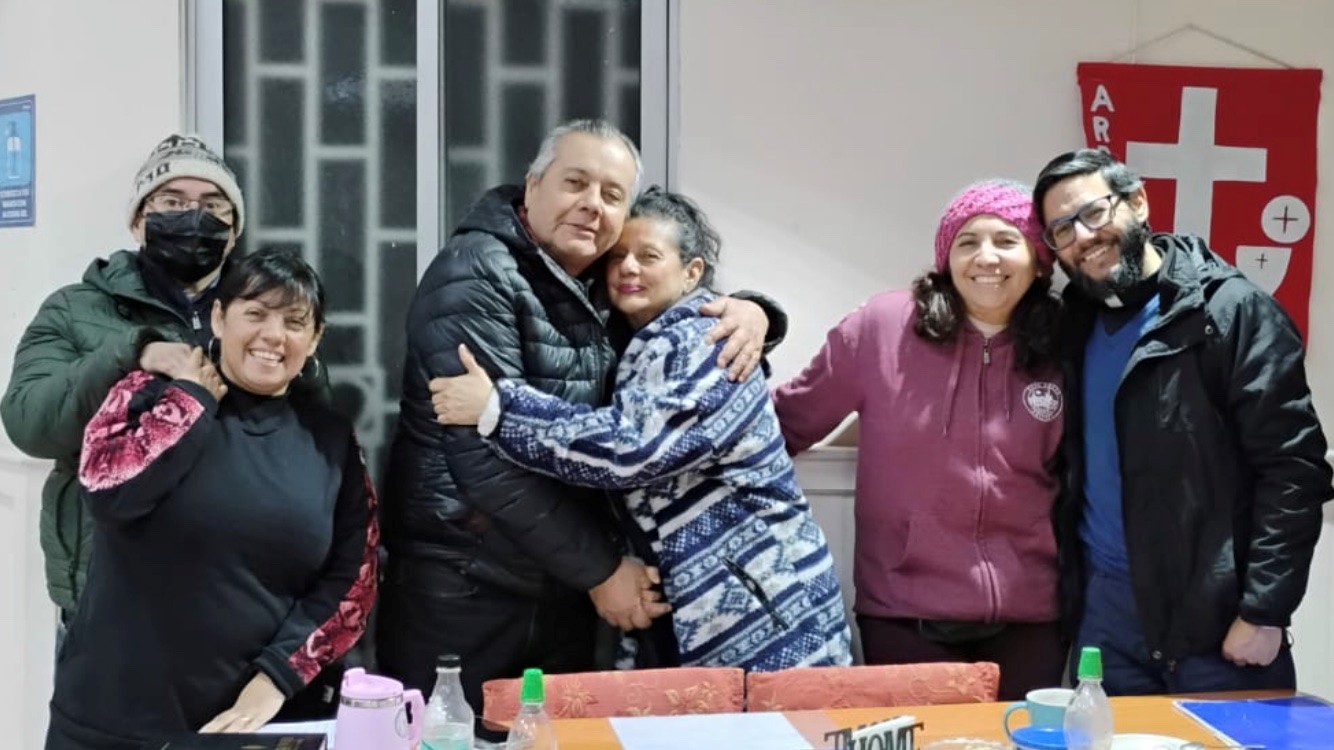
Husbands and Wives embrace after a Marriage Discipleship class (pictured with Pastor Morales on the right)
Emanuel sees two ministry imperatives as being the most urgent. First, the impartation of the Word of God. Since his arrival at Iglesia El Salvador, he has concentrated on clear biblical preaching and teaching, with a strong discipleship emphasis, and has also strengthened youth ministry and outreach, marriage discipleship, men’s and women’s bible study, congregational and home group prayer meetings, among other key ministries.
The second imperative is the work of mercy ministry, relating and responding to the specific needs of the surrounding community. In San Joaquin, one special group are the elderly, and there is a clear need to provide spiritual companionship and evangelism to older men and women who live in loneliness.
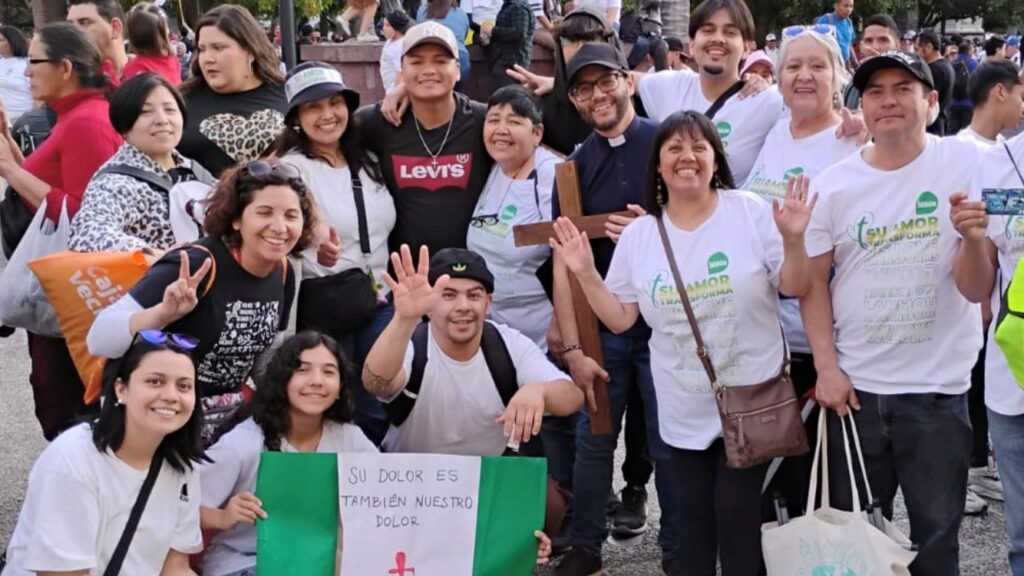
Members of Iglesia El Salvador participating in the “March for Jesus” in Santiago
Emanuel is also trying to emphasize outreach through other means, such as medical missions, and special events, such as the church’s participation in the “March for Jesus” in the center of Santiago, together with Christians from many other denominations. The church is planning a special activity for Christmas as part of the Anglican Church’s “Gift to the City” in Santiago. The street outside the church in San Joaquin will be closed off for a day, to allow for activities including Christmas games, songs, food, and other entertainment.
There is much to be hopeful for as Iglesia El Salvador looks toward the many opportunities which lie ahead. These opportunities require strong leadership and Emanuel is the minister that God has sent to lead us in this season of reaching our community for Christ. May God bless Iglesia El Salvador and prosper the work of the Kingdom both within it, and through it. Glory be to Him!
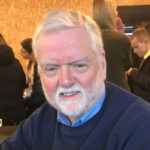
You can read and support Chris and the projects he is working on in Chile here.
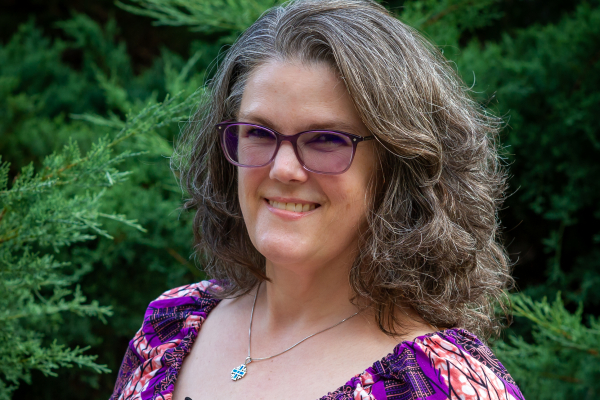
Rest in Peace: The Rev. Dr. Jessica Hughes (1970-2025)
We give thanks for the life and ministry of the Rev. Dr. Jessica Hughes, SAMS Missionary, who died at home on December 8th. Jessica celebrated her 55th birthday on December 3rd with greetings from friends all around the world.
Jessica served faithfully with your Society since 2011, primarily as a lecturer focusing on field ministry preparation at Uganda Christian University (UCU) at the Bishop Tucker School of Divinity and Theology. She also helped UCU navigate massive challenges during the Covid pandemic by serving as the eLearning Manager. The seeds she planted in her ministry roles continue to bear fruit in East Africa and beyond for the Kingdom of God. Her fellow missionaries, students, and colleagues loved her dearly.
She persevered in the faith and earnestly sought to follow the Lord’s will throughout her life. By God’s grace, she graduated from the Selah program (spiritual direction certification) in September!
Jessica’s sending church, All Saints, Woodbridge, VA, has walked with her beautifully through the two years that she has been on this difficult journey–supported especially by the “Wonder Women” and held in the arms of Jesus. Jessica’s funeral will be at All Saints at a date in early January to be determined.
Jessica shared in her November letter this prayer: “Of all good things I have known in this life, Jesus, it is you alone I might keep into death, and it is you alone that I need.” ~Every Moment Holy, Volume II
Last month Jessica and I shared a sweet time together in prayer and remembering God’s goodness. I carried love and greetings from us all. Her love for you all was deep. We celebrated together the feast day of Hilda of Whitby—another faithful missionary who was gifted by God with wisdom. She, too, suffered in her last years. Hilda’s dying witness left a powerful mark on contemporary Venerable Bede as he recorded that she “passed from death to life.” Jessica kept in her vision the sure hope of passing into life everlasting in Jesus.

Please pray with me:
- O Lord, may you grant comfort and strength for Jessica’s extended family, her Wonder Women, her church family, her UCU family, her SAMS family, and all who love Jessica.
- May you continue your healing touch on Jessica’s godson Nick.
- “Let us learn to love one another well in our common grief, O Lord. Let us learn to speak freely together of our great loss, and our still-greater hope.” ~Every Moment Holy, Volume II
- “Depart, O Christian soul, out of this world;
In the Name of God the Father Almighty who created you;
In the Name of Jesus Christ who redeemed you;
In the Name of the Holy Spirit who sanctifies you.
May your rest be this day in peace,
and your dwelling place in the Paradise of God.”
In the love of Jesus with thanksgiving for you,
Stewart Wicker
A Memorial Service for Jessica will be held on Monday, January 5, 2026, at 10 a.m. The service and reception will take place at All Saint’s Church 14851 Gideon Drive, Woodbridge, VA 22192
